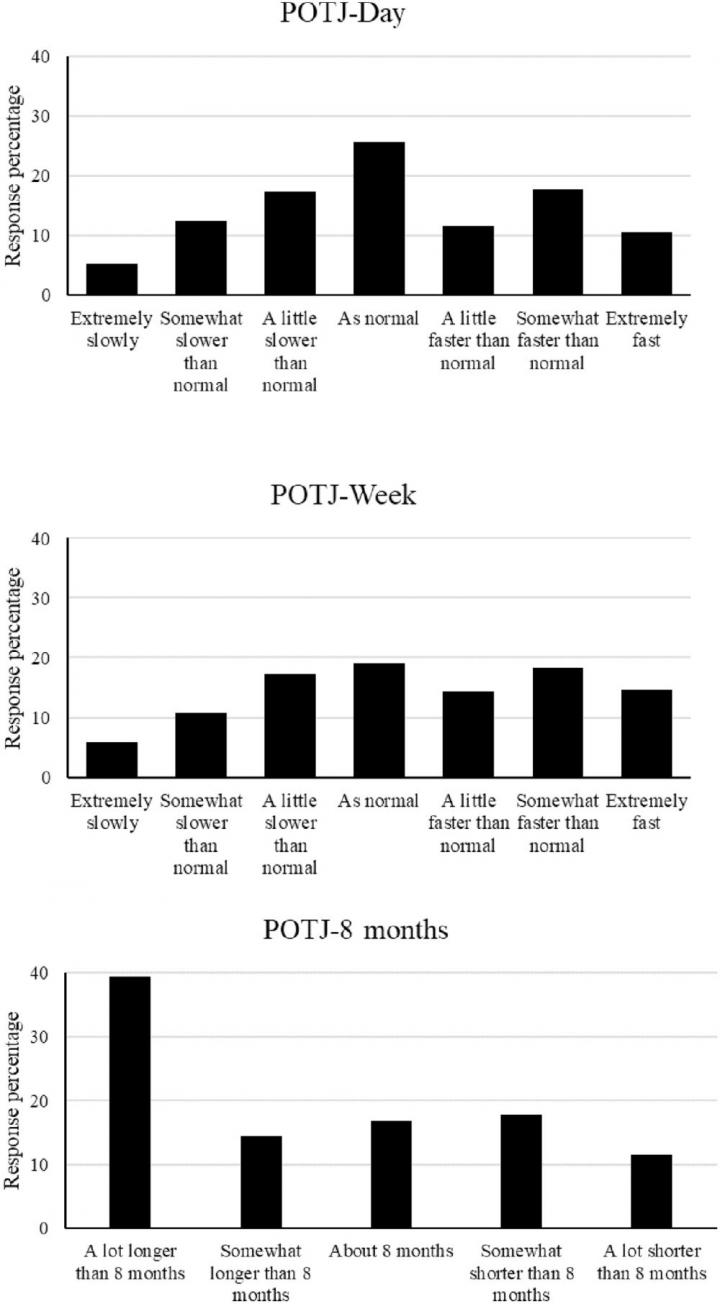"Time flies when you are having fun" and COVID-19 quarantines and lockdowns were not fun.
A new study also finds what psychologists warned about; the effects on those with depression issues could be even worse. Unlike a new job or moving to a new place, where time also 'seems' to slow down, the new paper found that distortions to the passage of time were also present later into the global pandemic.
An online questionnaire was used to collect passage of time judgments for the day, week and 8 month period since the first UK lockdown. In addition, measures of affect, social satisfaction, task-load, compliance and health status were also recorded.

The frequency of responses for each Likert point for the day judgment (upper panel), week judgment (middle panel) and 8-month judgment (lower panel). Image: Ogden, 2021, PLOS ONE (CC-BY 4.0, https://creativecommons.org/licenses/by/4.0/)
The results show that over 80% of people reported experiencing distortion to the passage of time during the second English lockdown in comparison with normal. Depression, satisfaction with social interaction and shielding status were found to be significant predictors of temporal distortion. A slower passage of time was associated with greater depression, shielding and greater dissatisfaction with social interactions.
Feeling like it was longer than 8 months since the UK’s first lockdown was associated with greater depression, increased dissatisfaction with social interaction and greater change of life as a result of lockdown. The results suggest that distortions to the passage of time are an enduring feature of lockdown life and that different factors predict temporal experience during different points in lockdown.





Comments